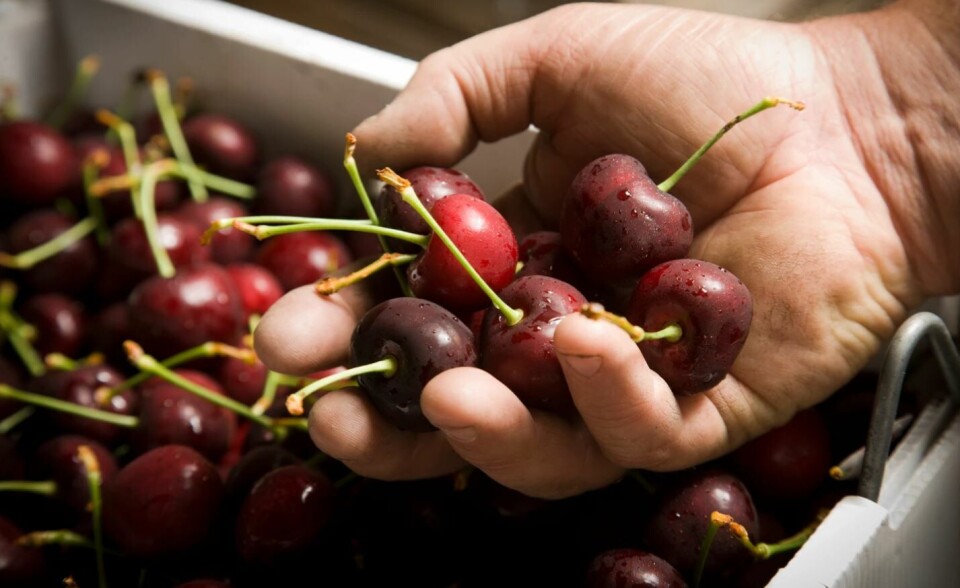
Cherry farmer hails salmon poo as secret of success
Tasmanian salmon producer Huon Aquaculture has struck up a fruitful relationship with a cherry farmer, thanks to the nutritional qualities of fish faeces from Huon’s Whale Point nursery.
Cherries Tasmania Orchards owner Nic Hansen says the waste from the smolt facility enriches his orchard’s homegrown compost with calcium, phosphorus and nitrogen while also improving the soil’s microbial diversity.
“It’s like a Christmas gift for us each time the truck comes in because we know what benefit the end-product compost has on our orchard health,” Hansen told Tasmanian news outlet The Mercury.
Seven years’ work
He said lower ammonia, sodium and chloride levels in the finished compost are some of the benefits of using fish waste over other animal-based manures, but the biggest plus is that it provides a better microbial diversity in the soil.
“What you see here today is the result of seven years of very hard work and research and development in what we think is Tasmania’s best compost product,” Hansen told The Mercury.
“We saw a need to manufacture a better-quality compost in our facility. We thought the commercially available composts weren’t good enough for the quality of fruit we have to produce here in Tasmania.”
A win-win
Cherries Tasmania buys 400 tonnes of the 1,300 tonnes of waste produced annually at Whale Point, and has begun selling its compaost commercially for A$55 per cubic metre. Huon is now working with other farmers to take the remaining 900 tonnes of its waste that would otherwise go to landfill.
“It’s a win-win for everybody because our fish poo is collected and used to grow another food product,” Huon’s co-owner Frances Bender told The Mercury.
“We’ve now been able to value add something that is a waste product. We believe that we’ll be in a situation where we will be making a small profit on a waste product rather than it being a cost to the business.”























































